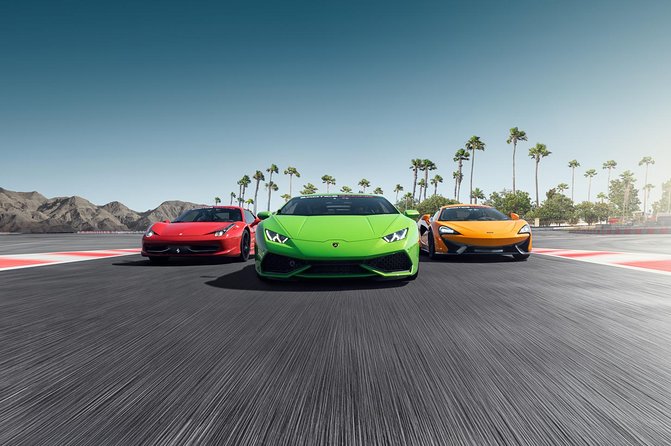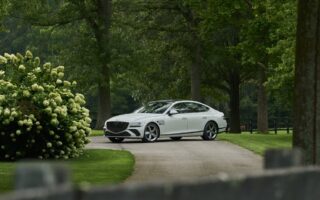The automotive industry is in the midst of a dramatic transformation, and at the forefront of this evolution stand luxury electric cars. What was once a futuristic dream reserved for concept stages and sci-fi imaginations has now become an undeniable reality on the roads. Electric vehicles (EVs) are not only here to stay—they’re redefining the standards of modern mobility with a new sense of elegance, power, and environmental consciousness.

Once seen as quirky or experimental, EVs have matured into a dominant force across all segments of the automotive world. But nowhere is this transformation more profound than in the luxury space. Here, manufacturers are not just building electric vehicles to meet emission targets—they’re crafting machines that evoke emotion, display innovation, and reflect status. These vehicles are designed to inspire desire through a unique combination of engineering mastery and forward-thinking luxury.
With the growing urgency around climate change, rising fuel costs, and stricter emissions regulations, consumers are looking for alternatives that allow them to drive responsibly without sacrificing performance or style. Luxury EVs answer that call. They offer whisper-quiet rides, instant torque, and acceleration that rivals supercars—all while producing zero tailpipe emissions. More than ever, driving electric is both a lifestyle choice and a statement of intent.
What makes this new breed of vehicle so compelling is its ability to merge sustainability with sophistication. The silent hum of an electric motor, the seamless connectivity, the cabin materials crafted from recycled or vegan alternatives—every detail is carefully considered. These aren’t just cars; they’re technological sanctuaries on wheels, designed to anticipate your needs and elevate every journey.
In this article, we take you deep into the world of luxury electric cars in 2025. We’ll explore the trends shaping the industry, the standout models redefining expectations, and the reasons why more luxury buyers are making the switch to electric. From the streets of New York and Tokyo to the autobahns of Germany and coastal highways of California, these vehicles are turning heads, changing minds, and setting new benchmarks for what it means to drive in the modern age.
Whether you’re a performance enthusiast, a tech lover, an environmental advocate, or simply someone who appreciates the finer things in life, this comprehensive guide will show you why luxury electric cars are no longer the future—they are the now.
The Rise of Luxury Electric Cars
Luxury cars have always transcended their basic function as a means of transportation. They symbolize achievement, aspiration, and an appreciation for craftsmanship and innovation. From handcrafted interiors to precision-engineered drivetrains, the luxury automobile has long been a canvas on which manufacturers express their vision of excellence. But in the modern era, this canvas is being repainted with new values—sustainability, digital intelligence, and social awareness.

Over the past decade, the very meaning of “luxury” in the automotive world has undergone a quiet revolution. It is no longer exclusively defined by leather, chrome, and roaring engines. Today, true luxury embraces subtlety, responsibility, and forward-thinking design. An opulent cabin is no longer impressive unless it’s made with ethically sourced, sustainable materials. Cutting-edge performance isn’t just measured in horsepower anymore—it’s judged by how silently, cleanly, and intelligently a vehicle moves.
The Shift in Buyer Priorities
This evolution hasn’t happened in a vacuum. It reflects a broader shift in what luxury buyers value. Modern consumers—especially those in younger, affluent demographics—are more tech-savvy, eco-conscious, and socially engaged. They’re interested in smart investments that align with both their lifestyle and their ethics. As a result, there’s growing demand for products that are not just exclusive, but also intelligent and responsible.
Luxury electric cars fit this new demand perfectly. They offer high performance and prestige, while also sending a clear message: success and sustainability can coexist. For many owners, driving an EV isn’t just about convenience or savings on fuel—it’s a visible and intentional choice to align with the future.
Early Adopters with Influence
It’s no coincidence that the electric revolution began with premium vehicles. Affluent buyers have always been early adopters of new technology—whether it’s in fashion, real estate, or mobility. These individuals are willing to take risks on innovation, and they expect brands to deliver experiences that are both bold and refined.
This makes the luxury car segment the perfect proving ground for electric mobility. Automakers understand that if they can impress the luxury market, the rest of the industry will follow. As a result, luxury EVs are often the first to debut groundbreaking technology, from next-gen batteries and autonomous driving systems to AI-driven infotainment and biometric security.
Tesla recognized this early on with the Model S, which changed the public perception of electric cars from slow and utilitarian to fast, stylish, and desirable. Since then, legacy brands like Mercedes-Benz, BMW, Porsche, and Audi—as well as newcomers like Lucid and Rivian—have invested billions in crafting electric vehicles that meet (and often exceed) their traditional gas-powered counterparts.
A New Platform for Innovation
Another reason for the rise of luxury electric cars is that EVs provide a clean slate for creativity. Unlike traditional vehicles, which are built around bulky engines, gearboxes, and exhaust systems, electric cars offer a more flexible architecture. Batteries can be placed under the floor, motors can be positioned at the wheels, and cabins can be reimagined entirely.
This flexibility allows designers and engineers to break free from convention. Interiors can be roomier and more minimalist. Exterior shapes can be more aerodynamic and futuristic. Features that were once optional—like panoramic glass roofs, massive infotainment displays, or customizable ambient lighting—are now common in high-end EVs.
Luxury brands have embraced this opportunity not just to electrify their existing models, but to reinvent what a luxury car can be.
The Emotional and Cultural Shift
Perhaps the most fascinating aspect of the rise of luxury electric cars is the emotional transformation they’ve undergone. Once viewed as compromises—less powerful, less exciting, and less “real”—EVs are now objects of desire in their own right. They inspire admiration not just for their efficiency, but for their quiet power, elegant simplicity, and futuristic aura.
Culturally, we are also seeing a redefinition of what status looks like. Owning a large, gas-guzzling SUV might still make a statement—but owning a silent, high-performance electric car that charges in your solar-powered garage says something more nuanced: I have arrived, but I’m also aware.
In summary, the rise of luxury electric cars is about much more than motors and batteries. It reflects a larger cultural awakening—a desire to embrace progress, lead by example, and drive something that aligns with the world we want to live in. As luxury continues to evolve, electrification is not just inevitable—it is essential.
Why Luxury Electric Cars Are Taking Over
The dominance of luxury electric cars in the modern automotive landscape is no accident. Their rise is fueled by a perfect storm of technological innovation, cultural shifts, and evolving consumer expectations. While early electric vehicles focused on efficiency and utility, today’s luxury EVs combine thrilling performance, unmatched comfort, and cutting-edge intelligence—all with a conscience.
Here are the key reasons why luxury electric vehicles are becoming the new gold standard in premium motoring:

Instant Performance That Rivals Supercars
Electric motors deliver something combustion engines can’t: instant torque. The moment you press the accelerator, power is transferred directly to the wheels without delay. There’s no need to wait for turbochargers to spool or gears to shift—everything happens immediately and silently.
This results in breathtaking acceleration that’s smoother and more linear than any traditional drivetrain. Many luxury EVs now achieve 0–60 mph in under 3 seconds, putting them in the same league as performance icons like Ferraris and Lamborghinis—without the roar or drama. Whether you’re merging onto a highway or launching from a standstill, the experience is thrilling yet refined.
For many luxury buyers, this blend of power and poise is simply irresistible.
A Quiet, Serene Driving Experience
Luxury has always been synonymous with peace and comfort—and electric cars deliver both in spades. With no internal combustion engine to generate noise or vibration, the driving experience becomes almost eerily quiet. You glide down the road in near silence, feeling isolated from the chaos of the outside world.
This quietness isn’t just about absence of sound—it’s about presence of calm. Add in sound-insulated cabins, adaptive suspension systems, and AI-assisted climate control, and luxury EVs become rolling sanctuaries, perfect for commuting, entertaining clients, or simply enjoying the road in solitude.
For high-end customers who crave tranquility as much as excitement, silence is the new luxury.
Advanced Technology Integration
Luxury electric cars are more than just vehicles—they’re intelligent ecosystems on wheels. Automakers are packing them with the most advanced technologies available, many of which are either unavailable or optional in traditional models. These systems are designed not just to enhance convenience, but to completely redefine the relationship between driver and machine.
Common features in 2025 luxury EVs include:
-
AI-based driver assistance that adapts to your driving behavior
-
Augmented reality (AR) navigation, projecting directions onto the windshield in real time
-
Biometric access and user profiles that adjust seats, lighting, climate, and infotainment based on your face, voice, or fingerprint
-
Over-the-air (OTA) updates that continuously improve performance, add new features, and fix bugs—much like a smartphone
With these tools, the car evolves with you, learns your habits, and ensures a deeply personalized experience every time you drive.
Environmental Consciousness Meets Prestige
Today’s luxury buyers are not only chasing status—they’re also driven by purpose and values. As awareness of climate change and environmental responsibility grows, affluent consumers are seeking products that reflect their ethics. Owning a luxury EV sends a powerful message: I care about the planet—but I won’t compromise on excellence.
Driving electric also means supporting innovation and clean energy. Many luxury EV owners charge their vehicles using solar power or renewable energy programs, further reducing their carbon footprint. Brands are also using eco-friendly materials in interiors—such as recycled plastics, vegan leather, or sustainably sourced wood—to align with green lifestyles.
For this new generation of buyers, sustainability is the new sophistication.
Lower Long-Term Ownership Costs
It might seem counterintuitive, but owning a luxury EV can be more economical over time compared to a gas-powered equivalent. Despite a higher sticker price, the cost of ownership often drops thanks to several key factors:
-
Fewer moving parts mean fewer things to break. No oil changes, spark plugs, timing belts, or fuel injectors.
-
Electricity is cheaper than premium fuel, especially if you charge at home.
-
Government incentives, tax credits, and rebates can significantly reduce the initial purchase cost in many regions.
-
Battery warranties typically cover 8–10 years, and software updates can even improve efficiency over time.
-
Brake wear is reduced due to regenerative braking, which also helps recharge the battery during driving.
Over a 5- to 10-year ownership period, many drivers find that luxury EVs are not just greener—but also smarter investments.
In short, luxury electric cars are taking over because they offer the perfect blend of what today’s premium buyers want: performance without guilt, technology without complexity, and beauty without compromise. As infrastructure improves and battery technology advances, this shift will only accelerate. For those seeking the future of driving wrapped in elegance and intelligence, the choice is becoming clear—and it’s electric.
Top Luxury Electric Cars in 2025
Let’s take a closer look at the standout luxury electric cars of 2025 that are shaping the future of mobility.
Tesla Model S Plaid
Tesla remains a leader in the luxury EV space. The Model S Plaid is Tesla’s flagship sedan, offering:
-
Over 1,000 horsepower
-
0–60 mph in under 2 seconds
-
Autopilot and Full Self-Driving capabilities
-
Minimalist interior with a yoke steering wheel
With access to the expansive Supercharger network and constant software updates, the Model S Plaid is a technological tour de force.
Mercedes-Benz EQS
The EQS is Mercedes-Benz’s electric equivalent of the legendary S-Class. It’s a full-size sedan that redefines interior luxury, featuring:
-
Hyperscreen dashboard spanning the entire front panel
-
Rear massage seats and executive comfort features
-
Up to 400 miles of range
-
Next-gen MBUX infotainment system with voice control
The EQS combines traditional elegance with futuristic design in a way only Mercedes can deliver.
Lucid Air
Lucid Motors is a relative newcomer, but the Air has taken the luxury EV world by storm. The Lucid Air Dream Edition offers:
-
1,111 horsepower
-
Industry-leading range of up to 520 miles
-
Opulent materials and customizable interiors
-
High-performance yet ultra-efficient engineering
Lucid represents a vision of luxury that’s built from the ground up for the electric age.
BMW i7
The i7 is BMW’s electric flagship sedan, sitting alongside the 7 Series. It brings classic Bavarian luxury into the EV era with:
-
Dynamic handling and rear-wheel steering
-
31-inch rear theater screen
-
Regenerative braking with multiple modes
-
Iconic BMW kidney grille reimagined for EVs
BMW’s i7 proves that electrification doesn’t mean giving up driving pleasure.
Porsche Taycan
For those who equate luxury with performance, the Porsche Taycan is the answer. It’s a sports sedan that feels like a supercar, featuring:
-
Low center of gravity for razor-sharp handling
-
Dual or triple motor configurations
-
Beautifully crafted interior with digital and analog harmony
-
Unique two-speed gearbox for added acceleration
The Taycan blends Porsche heritage with future-forward electric drive.
Electric SUVs: The New Flagship
Luxury electric cars aren’t limited to sedans. In 2025, many of the most desirable EVs are actually SUVs, offering versatility and road presence. Highlights include:
Rivian R1S
Rivian’s R1S is a rugged, off-road capable luxury SUV with:
-
316-mile range
-
Quad-motor system with independent control per wheel
-
Adventure-ready interior with sustainable materials
It appeals to buyers who want luxury with a spirit of exploration.
Cadillac Escalade IQ
Cadillac’s electric Escalade carries all the presence of its combustion-powered sibling but adds:
-
Curved 55-inch infotainment screen
-
Up to 450 miles of range
-
Ultra Cruise hands-free driving
It’s big, bold, and unmistakably American luxury—now electrified.
Audi Q8 e-tron
Audi’s Q8 e-tron offers German refinement in an electric package with:
-
Quattro all-wheel drive
-
Spacious, high-tech interior
-
Up to 300 miles of range
-
Elegant styling and intuitive user experience
It’s a strong option for those who prioritize understated elegance.
Interior Innovation in Luxury EVs
The cabin of a luxury electric car in 2025 is more than a place to sit—it’s a personalized tech sanctuary. Here are some interior trends:
Digital Cockpits
From curved OLED screens to augmented reality HUDs, the driver interface is immersive and highly customizable.
Sustainable Materials
Brands are embracing vegan leather, recycled plastics, and responsibly sourced wood, combining luxury with eco-consciousness.
Smart Seating
Massaging, heated, cooled, and even reclining seats are common. Some EVs offer zero-gravity seating for passenger comfort during autonomous travel.
Ambient Experiences
Color-changing ambient lights, integrated fragrance systems, and AI-driven climate control enhance the in-cabin environment to suit mood, time of day, or weather.
Charging and Infrastructure in 2025
For years, one of the most persistent concerns surrounding electric vehicles—especially in the luxury segment—has been the availability, speed, and convenience of charging. Early adopters often found themselves planning routes around limited infrastructure, worrying about charging speeds, and dealing with incompatible plugs or outdated stations. But in 2025, the landscape has evolved dramatically.

Thanks to a global push for electrification, massive private and public investment, and advances in technology, the charging ecosystem in 2025 is faster, smarter, and more widespread than ever before. For owners of luxury electric cars, charging has become less of a compromise and more of an integrated lifestyle benefit.
Ultra-Fast Charging Is the New Normal
High-speed DC fast charging has made enormous strides in both power output and accessibility. In 2025, most premium charging stations can now deliver 200 to 300 miles of range in under 20 minutes—a quick stop that’s equivalent to a coffee break. Networks like Electrify America, Ionity, and Shell Recharge have expanded their ultra-fast offerings along highways, city centers, and destination routes.
Luxury automakers are also partnering with charging providers to guarantee performance and user experience. Some brands offer tailored charging services with perks like reserved charging bays, valet charging, or integrated payment via the vehicle’s infotainment system.
This level of convenience means road trips and daily use are no longer limited by time or range. For most drivers, charging an EV now feels almost as fast—and far more relaxing—than stopping for gas.
Tesla’s Supercharger Network Opens to All
Tesla’s once-exclusive Supercharger network, long considered the gold standard in EV infrastructure, is now being opened to non-Tesla vehicles in many parts of the world. This move has significantly increased reliable charging options for luxury EV owners, regardless of brand.
The Supercharger system is known for its clean design, intuitive interface, and consistent reliability—making it especially appealing to luxury drivers who prioritize seamless experiences. With universal connectors (such as NACS in North America or CCS2 in Europe), more luxury EVs can now tap into this high-speed, strategically placed network.
In essence, Tesla’s infrastructure advantage is gradually becoming an industry-wide benefit.
Smart Home Charging Becomes Mainstream
While public infrastructure is important, the majority of EV charging still happens at home. In 2025, home charging solutions have become significantly more intelligent, integrated, and efficient. Wall-mounted chargers now offer:
-
Scheduled charging to take advantage of off-peak electricity rates
-
Smartphone controls for remote start, status updates, and energy tracking
-
Solar panel integration, allowing homes to generate and store their own electricity
-
Bidirectional charging (V2H or V2G), where the car can power your home or feed energy back to the grid
Luxury EV owners often pair their vehicles with full energy ecosystems, including solar roofs, smart batteries, and AI-driven energy management systems. This creates a closed-loop of clean, self-sufficient mobility, turning the home and car into an interconnected hub of sustainability.
Wireless Charging Emerges in Premium Markets
Another major step forward is the emergence of wireless EV charging—a game-changer in convenience. Using electromagnetic induction, these systems allow owners to simply park their car over a pad to begin charging—no cables or plugs required. While still in the early stages of rollout, wireless charging is gaining traction in:
-
Urban EV fleets and taxi hubs
-
High-end residential garages
-
Luxury apartment buildings and office parks
-
Future-ready public parking lots
Manufacturers like BMW, Genesis, and Mercedes-Benz are already testing or offering wireless charging on select models. For high-income buyers, this “invisible convenience” is quickly becoming a must-have.
Confidence Replaces Range Anxiety
The result of all these improvements is clear: range anxiety is becoming a thing of the past. Modern luxury EVs offer between 300 and 500 miles of range on a single charge, and with fast chargers more widely available than ever, drivers no longer feel limited by their vehicle’s battery.
Additionally, most vehicles now include real-time range prediction, automatic charger routing, and battery pre-conditioning to optimize speed and efficiency. You simply get in, enter your destination, and the car handles the rest—including charging stop recommendations, wait time estimates, and billing.
Luxury brands have taken this one step further by building exclusive charging lounges. These premium stations offer refreshments, co-working spaces, Wi-Fi, and concierge services while your car charges—transforming a routine stop into a curated experience.
In 2025, charging a luxury electric car is no longer a drawback—it’s an extension of the luxury experience itself. With speed, intelligence, and integration at the core, EV infrastructure now supports the demands of high-end customers, offering peace of mind, convenience, and even delight. The future of luxury driving is not just about what’s under the hood—but about how effortlessly you can power it.
The Role of Software in Luxury Electric Cars
In the electric age, software matters as much as hardware. Luxury EVs are now rolling computers, constantly improving through over-the-air updates. Manufacturers can unlock features, improve range, or tweak suspension dynamics with a simple download.
Brands are also investing in AI-powered personalization, where your vehicle learns your habits, route preferences, and entertainment choices. Some cars even sync with your calendar and smart home ecosystem.
In short, your luxury EV evolves with you.
The Future of Luxury Electric Cars
What’s next? Looking beyond 2025, luxury electric cars are set to become even more advanced. We can expect:
-
Level 4 and 5 autonomous driving in urban zones
-
Solid-state batteries offering over 700 miles of range
-
Modular interiors that adjust to work, relax, or entertain
-
Greater integration with smart cities and traffic systems
-
More personalized ownership models, including vehicle-as-a-service
Luxury will be defined not just by materials and engines, but by mobility experiences that adapt to your life.



